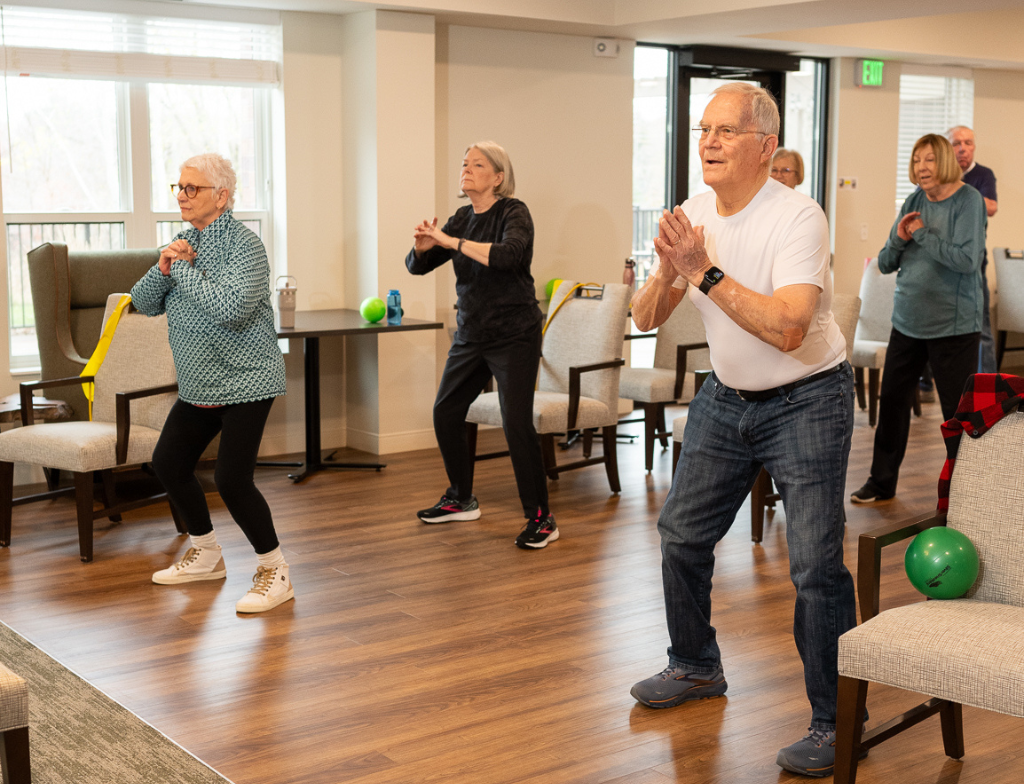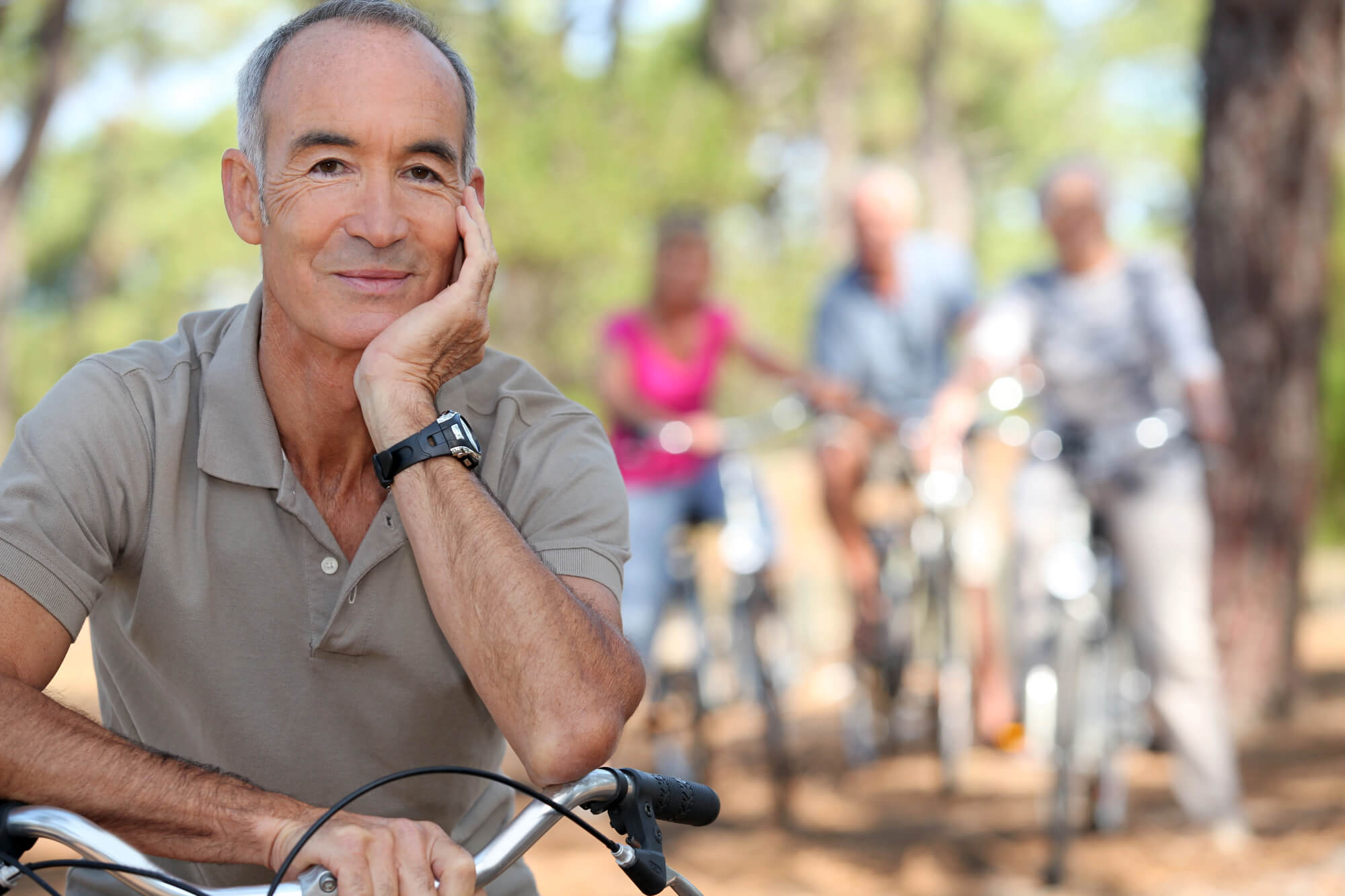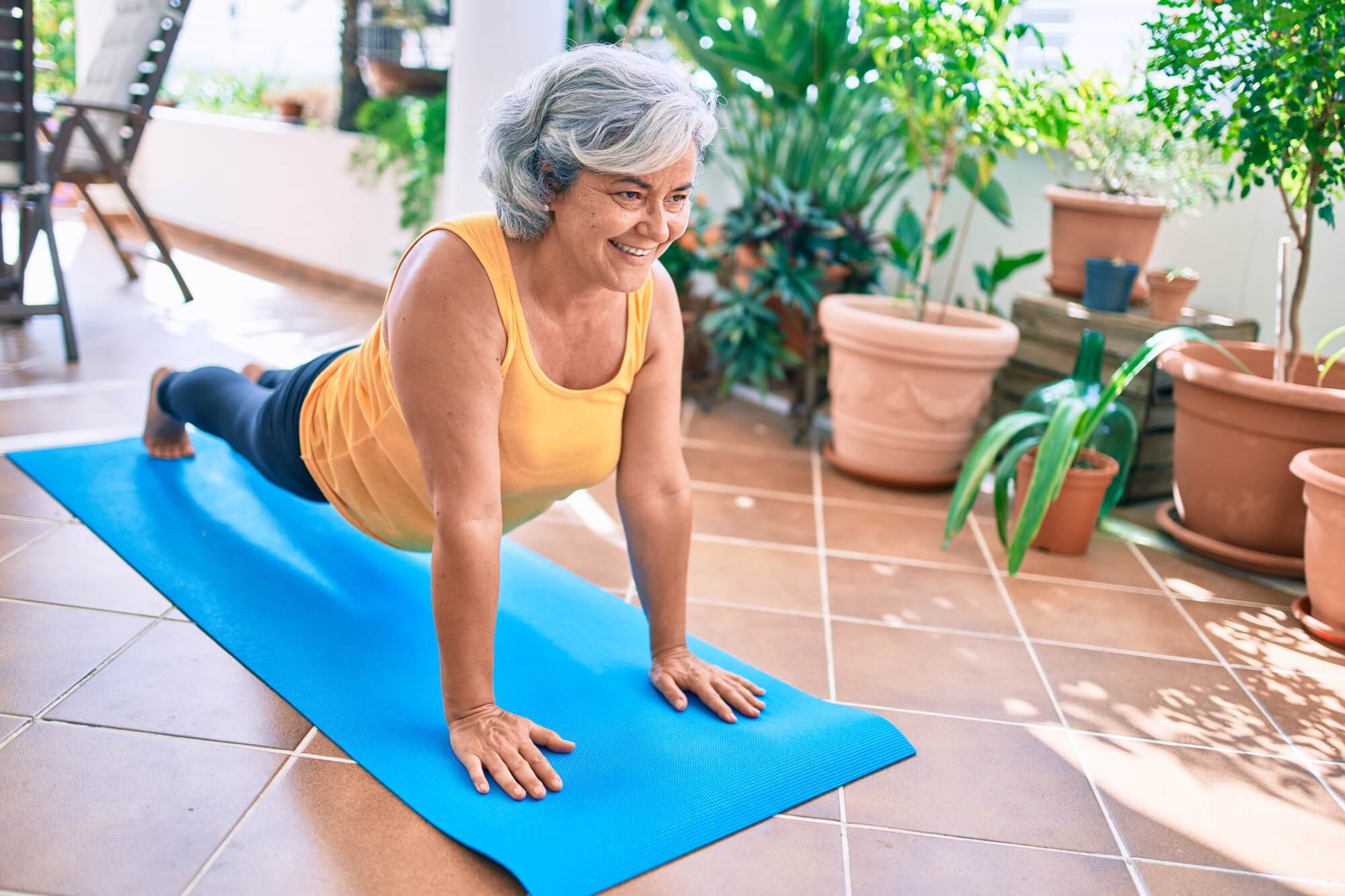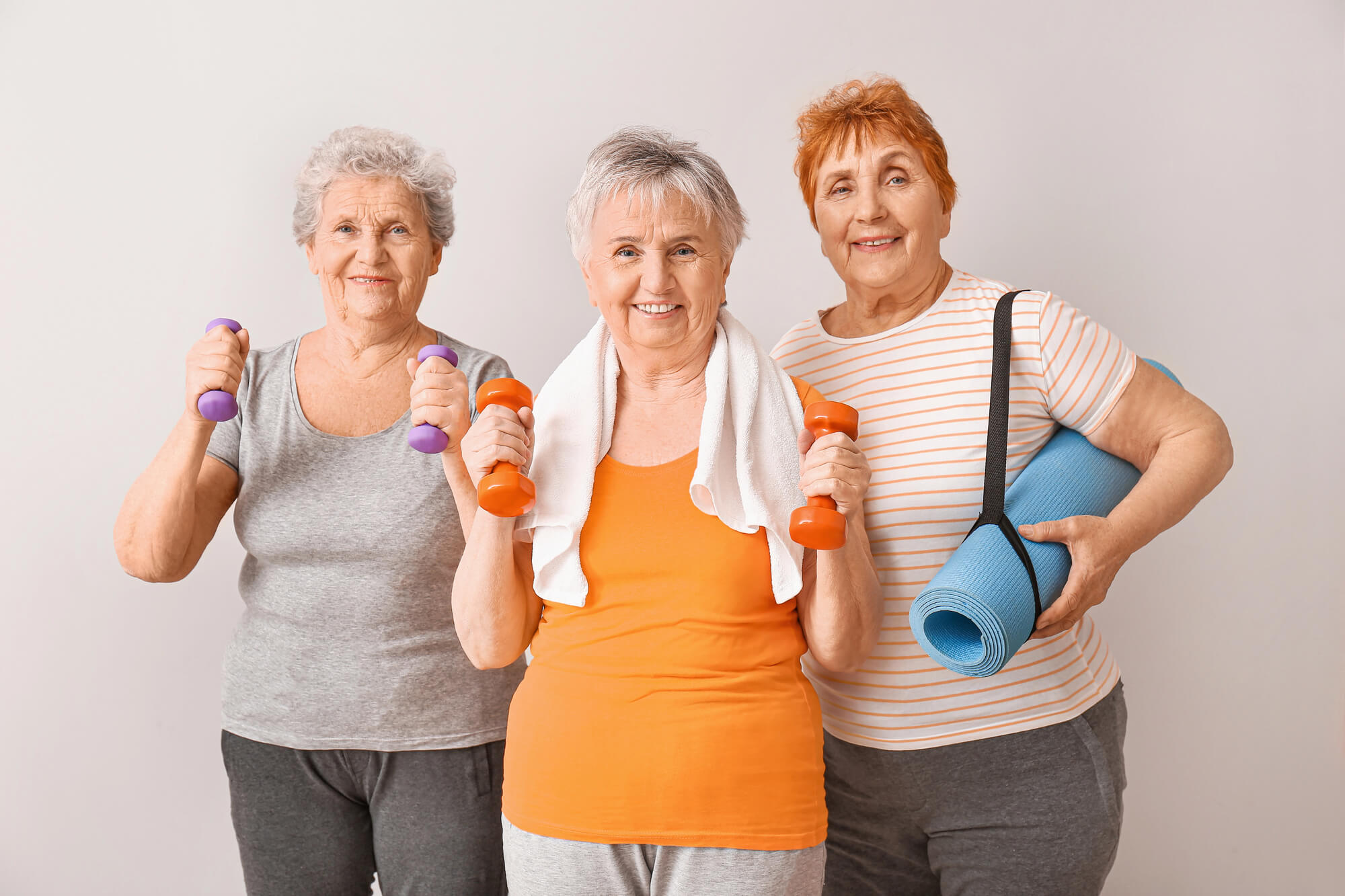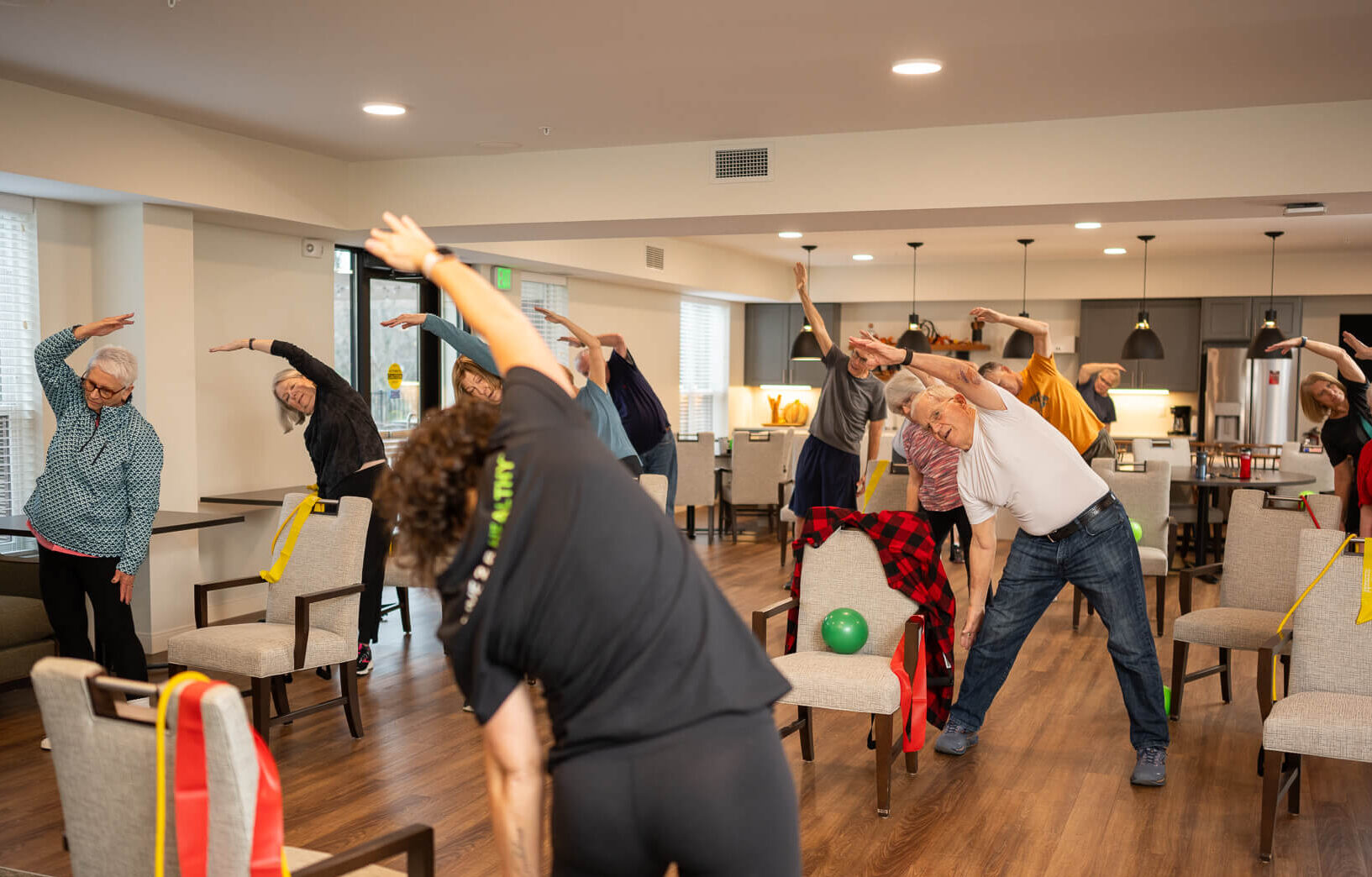As we age, the challenges of maintaining mental well-being can often be amplified. From loneliness and social isolation to cognitive decline, seniors face unique hurdles that can affect their overall quality of life. Yet, as studies increasingly reveal, one of the most effective tools for combating these issues may not be found in a doctor’s office but rather in a gym or community center.
Have you ever noticed how vibrant, lively conversations seem to flourish in communities where seniors are actively engaged?
Exercise has demonstrated remarkable benefits, not just for physical health but also for emotional and cognitive vitality.
For senior communities looking to improve mental health, establishing a routine that incorporates regular exercise could be a game changer. This approach not only fosters physical strength but also encourages social interactions, boosts mood, and enhances mental clarity. If you’re part of a community dedicated to supporting our older generations, let’s explore the transformative power of regular exercise and its mental health benefits in senior communities.
Why Improving Mental Health in Seniors is Crucial
As the global population ages, the mental health of seniors emerges as a critical aspect of community health care. Addressing this issue is pivotal not only for improving their quality of life but also for alleviating the burdens on healthcare systems and families.
Physical activity is recognized as a significant factor in enhancing mental health among all adults, not just the elderly, by promoting a sense of purpose and accomplishment through an active lifestyle.
The Physical Activity Guidelines for Americans, the U.S. Department of Health and Human Resources notes how research proves that just 2 and a half hours a week of moderate-intensity aerobic exercise in adults can have a beneficial impact on both their physical and mental well-being.
But it’s also essential because maintaining mental health in seniors directly impacts their physical health, their ability to remain independent, and their overall well-being.
As caregivers and community members, fostering environments that encourage physical activities can lead to profound, life changing benefits in the mental resilience and happiness of our aging population, thus enriching their later years.
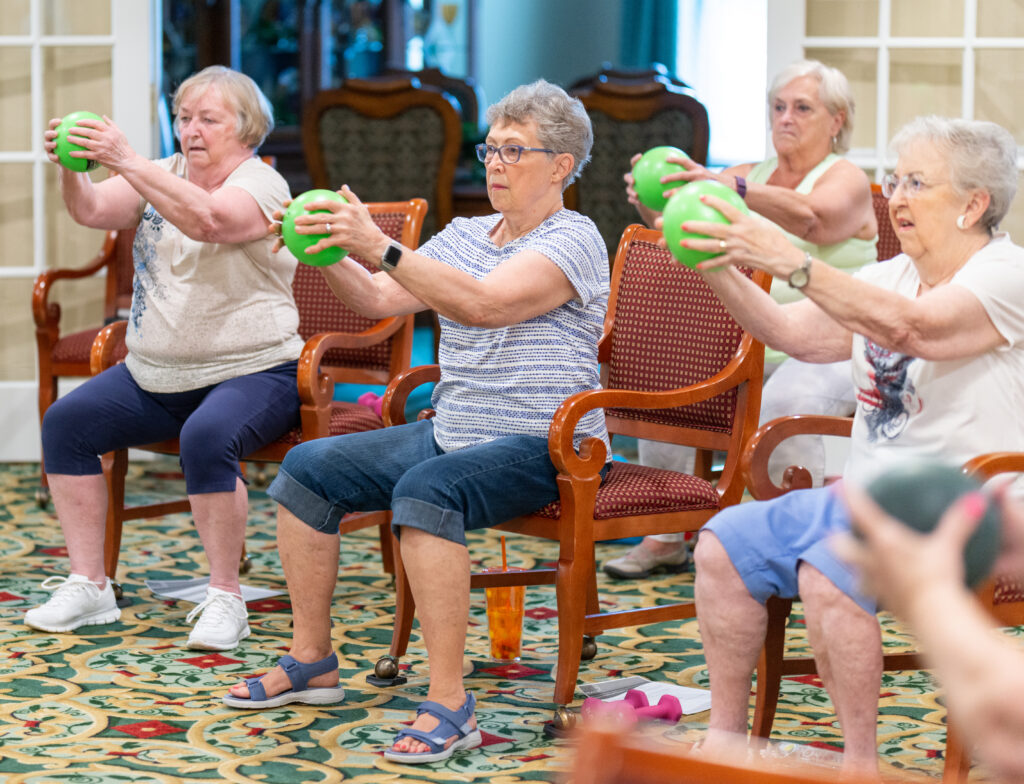
The Psychological Benefits of Exercise for Seniors
Exercise stands as a cornerstone for enhancing mental health among seniors, offering significant psychological benefits, from reducing the risk of depression to lowering stress levels; its positive effects on the mental health of seniors are almost instantly noticeable after increasing the levels of activity per week, if even slightly.
Here are just some of the many benefits to the mental health of seniors that regular physical activity can bring:
1. Reduced Risk of Depression and Anxiety
Regular physical activity significantly lowers the incidence of depression and anxiety among seniors, providing a substantial psychological benefit.
Engaging in regular exercise fosters a sense of well-being, promotes emotional resilience, and triggers the release of endorphins, often referred to as feel-good hormones. These biochemical changes are crucial in combating the feelings of loneliness and isolation that many seniors experience.
A study from the first year of the COVID-19 pandemic, for example, showed how many seniors were relieved of their symptoms of depression thanks to higher activity levels in their daily routines. Even moderate exercise was enough to result in improved mood.
Moreover, the structure of routine exercise programs can impart a sense of purpose and community, further enhancing mental health.
2. Improved Cognitive Function
Another one of the greatest mental benefits of exercise for older adults is improved cognitive function. Numerous studies have demonstrated that engaging in physical activity can markedly enhance cognitive function in seniors.
An effective exercise program, particularly one integrating strength exercises, serves not only to bolster physical health but also sharpens mental acuity. Through such structured activity, seniors can experience improvements in memory, attention, and problem-solving skills.
One systemic review from Australia found studies that showed how fitness activities lowered or slowed the occurrence of chronic diseases like dementia or cognitive decline in patients with Alzheimer’s disease, for example.
For caregivers and community leaders, incorporating structured and tailored exercise routines daily is a compassionate strategy to support the cognitive health of our elders, ensuring they maintain not only physical vigor but also mental acuity.
This approach underlines the profound impact of physical health on mental well-being.
3. Better Sleep
While physical activity is known to sharpen cognitive abilities in seniors, it also plays a significant role in enhancing sleep quality. Engaging in regular exercise sessions helps regulate the sleep-wake cycle, essentially training the body to recognize the appropriate times for rest.
Better sleep dramatically improves psychological well-being. With improved slumber, seniors often experience a reduction in stress and anxiety levels, contributing to overall mental health.
Furthermore, the time spent participating in these activities promotes relaxation and fatigue, which are critical for a good night’s sleep. Thus, integrating physical exercise into daily routines can be pivotal in ensuring that seniors not only live longer but also sleep better.
4. Enhanced Self-Esteem, Improved Body Image, and Confidence
It might be one of the better-known mental health effects of exercise, but it’s worth mentioning. As they incorporate more vigorous activities into their daily routines, seniors often experience enhanced self-esteem. The physical achievements, whether lifting a heavier weight or completing a new exercise, foster a profound sense of accomplishment.
This, in turn, positively impacts their body image and overall confidence. Such improvements compared to a sedentary lifestyle are crucial in counteracting age-related insecurities and promoting a more vibrant, engaged lifestyle.
5. Reduced Stress Levels
Building on the psychological uplift from enhanced self-esteem and body image, regular physical activity also plays a vital role in reducing stress levels among seniors.
When seniors engage in movement, especially aerobic exercise, it stimulates various brain chemicals that may leave them feeling happier and more relaxed. This type of exercise involves the rhythmic use of large muscles. It significantly contributes to stress relief by increasing the production of endorphins, the brain’s feel-good neurotransmitters, as mentioned before when talking about how exercise helps with anxiety and depression symptoms.
Additionally, the repetitive motions involved in activities such as walking, swimming, or yoga can have a meditative effect on the mind, helping to distract from daily worries and reducing tension in both the muscles and the mind, fostering a calming effect and enhancing overall well-being.

6. Increased Social Interaction
How often do we consider the social benefits of exercise for seniors? Regular physical activity, often guided by a skilled physical therapist, significantly enhances socializing opportunities for the elderly.
Participating in group exercises or walking clubs helps to forge new friendships and strengthen existing ones, creating a sense of community and belonging. These interactions are crucial as they can lead to a reduction in feelings of loneliness and isolation, which are common issues in senior communities.
Moreover, socializing while exercising can divert their minds from the symptoms of various diseases, offering not only physical relief but also emotional support.
Thus, exercise serves as a dual tool, enhancing both physical health and social well-being, fostering a healthier, more connected senior community.
7. Increased Energy and Motivation
Regular exercise is well-known for its ability to boost energy levels and motivation among seniors, contributing significantly to their psychological well-being. Engaging in physical activities like walking or gentle stretches helps maintain muscle strength and flexibility, which in turn enhances endurance and vitality.
These activities can also aid in weight management, reducing the risk of obesity-related health issues. Importantly, the psychological uplift from regular exercise is profound. Increased energy levels often lead seniors to participate more actively in both physical and social activities, further enriching their quality of life.
Moreover, the sense of achievement and autonomy gained through maintaining an exercise regimen fosters greater motivation to continue engaging in daily activities, sustaining their mental and physical health.
How Much Exercise is Needed to Improve Mental Health in Seniors?
Research suggests that moderate physical activity, tailored to individual abilities, can significantly improve psychological well-being.
For most seniors, engaging in at least 150 minutes (two and a half hours) of moderate aerobic activity per week, such as walking or swimming, is recommended. This can be broken down into manageable sessions, where even short 10-minute increments focusing on gentle movements that involve the foot and knee can be beneficial.
The National Heart Foundation of Australia also settles for about 30 minutes of exercise a day, although moderate. It can be just regular physical activity that is not too intense, just consistent regular activity that gives seniors the needed cardiovascular exercise to see its benefits.
Strength training twice a week is also advised to maintain muscle health and joint function. Consistency over weeks is crucial as it fosters not only physical endurance but also mental resilience, helping to combat depression and anxiety while boosting overall mood.
Other Benefits of Exercise Programs in Senior Communities
Exercise programs in senior communities offer more than just mental health benefits.
Reduces Risk of Falls
Among the numerous advantages of structured exercise programs for seniors, one critical benefit is the reduced risk of falls. Regular physical activity strengthens muscles and improves balance, crucial in maintaining stable positions and movements.
As seniors engage in tailored exercises, their ability to control and stabilize their body increases, significantly diminishing the likelihood of accidental slips or trips. In fact, many senior centers specifically tailor their fitness classes as fall prevention courses as well.
This preventive approach not only ensures their physical safety but also fosters a sense of independence and confidence among elderly individuals.
Prevents Heart Disease and Improves Overall Health
Engaging in exercise helps maintain and improve cardiovascular fitness, reducing the risk of hypertension, stroke, and myocardial infarction. Furthermore, physical activity helps regulate weight, strengthen muscles, and enhance mobility and flexibility, crucial aspects for maintaining independence among seniors.
Importantly, regular exercise also aids in better sleep patterns and stress reduction, contributing to an improved quality of life, heart health, and blood pressure
Gives Seniors Social Engagement
Physical activity in senior communities offers more than just health benefits; it serves as a vital platform for social engagement. Engaging in group exercises like yoga, tai chi, or walking clubs not only improves physical health but also fosters connections among residents.
These activities provide a sense of community and belonging, crucial elements for mental well-being. Seniors have the opportunity to interact, share experiences, and support each other, which combats feelings of isolation and loneliness.
Furthermore, organized group settings facilitate friendships that might not otherwise form, enriching their social lives. The psychological uplift from such social interactions is invaluable, enhancing mood and overall mental health in profound ways that extend beyond the physical benefits of the exercise itself.
Live 2 B Healthy Senior Communities Take Mental and Physical Health Seriously
Live 2 B Healthy Senior Communities champion both mental and physical well-being by implementing certified exercise plans tailored specifically for seniors.
These programs are designed by expert fitness professionals who understand the unique needs of the elderly population. By focusing on enhancing flexibility, strength, and cardiovascular health, these exercises not only improve physical fitness but also contribute significantly to mental health.
Regular physical activity in these settings reduces the risk of depression, helps manage stress, and boosts overall mood through the release of endorphins.
Moreover, the structured group format encourages social interaction, which is vital in combating loneliness and isolation among seniors.
Live 2 B Healthy’s commitment to holistic health care promotes a vibrant, engaged, and healthier community life. Contact us if you want to partner or search for a nearby location to sign up.

